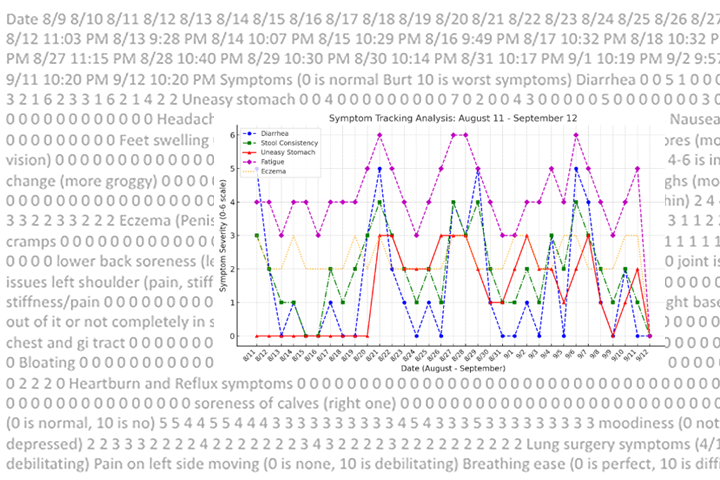Preparing for a Whipple Procedure: A Roadmap for Patients and Caregivers

A Whipple surgery is a lifechanging—and often lifesaving—procedure.
The surgery removes the head of the pancreas, most of the bile duct, the gallbladder, duodenum, and a small portion of the stomach. After the organs are removed, surgeons reconnect the remaining pancreas, bile duct, and stomach to the small intestine.
Helene Andrews-Polymenis underwent a Whipple in 2020, and her life, and digestion, has radically changed since the procedure. “The surgery essentially reinvents your digestive tract. It takes time and careful introduction of foods to help the body adjust to a new normal.”
What to Expect After a Whipple
Patients undergoing a Whipple procedure experience significant alterations in digestion and nutrient absorption. Here are a few key changes to expect:
- Weight loss. Weight loss is common after a Whipple procedure since the digestive organs operate differently post-procedure. This can be particularly concerning for patients who go into the procedure already underweight or malnourished. “Weight loss in pancreatic cancer is real,” says Andrews-Polymenis, a professor of Microbial Pathogenesis and Immunology at Texas A&M University College of Medicine (Bryan, Texas). “I was intentional about gaining weight before surgery because I knew I would lose some afterward.”
- Dietary restrictions. You won’t be able to return to your usual diet right away. “For the first few weeks, you’ll be on a restricted diet in terms of fat and fiber,” says John Chabot, M.D., chief of gastrointestinal/endocrine surgery at NewYork-Presbyterian Hospital (New York, New York). Many patients experience low appetite, altered taste, and feeling full after eating only small amounts of food. Rarely, patients may need to wait a year or more before returning to a more typical diet.
- Nutrient deficiencies. Studies suggest that up to 80 percent of cancer patients aren’t receiving or absorbing adequate nutrients. A Whipple procedure ups the ante. Chabot stresses the importance of protein in the diet leading up to the operation. “That’s the building block that is going to help you repair and recover after surgery,” he says.
- Bowel changes. Many patients experience bowel changes after surgery, including diarrhea, constipation, and excess gas. These symptoms are usually manageable with medication or pancreatic enzyme replacement therapy (PERT).
- Fatigue. According to Chabot, it’s normal to experience profound fatigue after surgery, including difficulties with concentration and staying on task. “In the beginning, I tell patients to plan to take a couple of naps each day to ensure their body is getting the rest it needs to allocate energy to recovery.”
- Blood sugar changes. Since part of the pancreas is removed, blood sugar regulation may become difficult. “There’s a risk of developing diabetes after Whipple surgery,” Chabot warns. “If you have prediabetes, your likelihood of developing diabetes increases.”
How to Prepare for a Whipple
Understanding what to expect before, during, and after the surgery can help prevent complications. Here’s how to prepare both body and mind for a Whipple procedure:
Body
- Nix bad habits: If you smoke, quit. Smoking not only wreaks havoc on your overall health, but it also boosts your odds of suffering from serious complications, such as heart and breathing problems during and after surgery. Heavy alcohol use can also increase the risk of complications, including increased bleeding and longer recovery times.
- Partner with a dietitian: A registered dietitian familiar with pancreatic cancer can help manage side effects, ensure appropriate pancreatic enzyme support, and address nutritional deficiencies. “At MD Anderson, my dietitian put me on a ‘first foods’ diet for two weeks—all white foods like bread, potatoes, and white pasta,- low fiber, low fat, and low sugar” says Andrews-Polymenis. “We gradually reintroduced foods based on tolerance.”
- Get moving: Try to be as active as possible before you go in for surgery. Getting regular physical activity, working your heart and lungs, will help speed your recovery. After surgery, Chabot suggests walking in a circle at first to ensure you’ll have enough energy to get home.
Mind
- Seek Out Emotional Support: “Every cancer patient should have a psychiatrist or a psychologist,” Andrews-Polymenis says. Pancreatic cancer increases the risk of depression, not just due to the disease’s gravity but also due to biochemical changes in the body.
- Coordinate Post-Surgery Assistance:Think about what type of support you’ll need after surgery. Do you need help with grocery shopping and meals? Or do you need someone to run your kids to their activities? Try to line up the assistance you’ll need in advance so you can rest easy and focus on recovering when you get home.
- Practice Mindfulness: Research suggests that mindfulness and meditation can significantly reduce stress and anxiety in cancer patients. Techniques such as deep breathing, guided imagery, and progressive muscle relaxation can help manage pain and promote relaxation. Even just a few minutes of focused breathing before bed can improve sleep and ease anxiety.
Andrews-Polymenis emphasizes that a Whipple procedure is a major adjustment. She now takes Creon (a pancreatic enzyme supplement) with every meal, can no longer tolerate leafy greens, and carries an emesis bag (in case she gets nauseated) with her at all times.
“It’s not easy, but I take it one day at a time,” she says. “People tell me, ‘You look great,’ but unless someone has been through a Whipple procedure, they don’t fully understand how it changes you. The key is going in as strong as possible to navigate the challenges afterward.”





